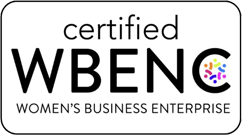Search engine optimization (SEO) is crucial for life sciences companies to increase visibility, establish credibility, and drive website traffic. However, SEO is an ever-changing field and requires continuous monitoring and optimization to maintain success.
This article will provide an overview of essential SEO monitoring tools for life sciences companies to track website and content performance. It will also discuss key metrics to monitor including organic traffic, rankings, and technical SEO issues.
Additionally, we will explore the emerging opportunity with generative search and how life sciences companies can optimize for featured snippets and information panels. As search engines continue to evolve with AI-powered experiences, SEO strategies must also adapt.
Tracking Success
Life science companies that embrace analytics position themselves to unlock the full potential of SEO. Here are the main SEO monitoring tools any marketer should use to make sure their SEO efforts are productive and accurate:
Google Analytics
Google Analytics is a free SEO monitoring tool offered by Google that tracks and reports website traffic and user behavior data. It works by inserting a small snippet of JavaScript tracking code on each page of a website that collects visitor information like pages visited, session duration, location, etc. and sends it to Google’s servers to be processed into reports and dashboards.
Google Analytics provides valuable user and traffic insights that are extremely useful for:
- Optimizing marketing campaigns and driving more website traffic by identifying high and low performing acquisition channels and content.
- Improving user experience by analyzing behavior flows and drop off points.
- Connecting business outcomes to web activity by tracking goals like purchases or form submissions.
- Identifying trends and opportunities for better engagement and conversions.
- Tracking landing pages and content driving the most organic traffic over time to identify top performers to optimize further.
- Analyzing keyword performance for core industry terms as well as niche long-tail keywords to optimize targeting.
- Setting up goals and conversion tracking to connect SEO efforts directly to business outcomes like trials, demos, etc.
Google Search Console
Google Search Console is another free SEO monitoring tool offered by Google that provides users with free and valuable insights tailored to search performance and behavior of visitors on their websites. This allows for data-driven decisions to improve discoverability and engagement with key audiences like researchers, clinicians, and partners. It is an indispensable platform for SEO.
Key benefits include:
- Tracking search visibility and impressions for target keywords and pages to optimize content. This includes niche, technical terms that researchers search for.
- Identifying technical SEO issues like crawl errors and fixing problems to improve indexing and performance. Life sciences sites can have complex architecture so this is valuable.
- Seeing links, user experience issues, and other data directly from Google’s systems to inform optimization.
- Submitting updated content like blogs and papers to ensure timely indexing by Google.
- Monitoring position for conversational search queries as AI and voice search advances.
- Reviewing crawl stats like errors and response codes to diagnose and fix technical SEO issues.
- Checking performance reports for target keywords to identify new optimization opportunities.
Backlink Analysis (Ahrefs, Moz)
A backlink analysis provides life science companies with valuable data to inform an effective SEO and content strategy tailored to the unique landscape. It serves as a benchmarking and optimization tool to improve discoverability and engagement with key target audiences in a competitive space.
The main reasons why backlink analysis tools like Ahrefs and Moz are important for life sciences companies include:
- They allow tracking of backlinks from academic institutions, journals, conferences, and other authoritative domains which signal credibility and trust to search engines—critical factors for ranking well in the competitive life sciences space.
- They provide insights into both the quantity and, more importantly, quality of backlinks. Life sciences companies should focus efforts on building links from highly reputable sources, not just any links.
- Analyzing competitors’ backlink profiles enables benchmarking and identifying link building opportunities. The tool can reveal who the top players are linking to and strategies to emulate.
- Monitoring backlinks over time is important to detect potential issues and maintain a natural link velocity that avoids penalties. These tools make this tracking simple.
Essential SEO Metrics for Life Sciences
Using SEO tools to monitor the right performance indicators allows life sciences companies to inform data-driven optimization, demonstrate ROI, and showcase credibility in a competitive landscape.
This section will explore essential metrics to track including organic traffic, keyword rankings, backlinks, site speed, top landing pages, and traffic sources. While some standard web analytics provide a foundation, niche data tailored to the unique needs of the life sciences space is also critical for a comprehensive view.

Combining common metrics with industry-specific competitive benchmarking offers actionable insights to refine approaches and better engage target audiences of researchers, clinicians, and partners.
The following key indicators offer a 360-degree view into the health and optimization needs of life science SEO efforts. Tracking over time enables rapid response to issues as well as further improvement of top performers.
Organic Traffic
- Track total organic traffic over time as a key benchmark for any SEO strategy. Analyze trends and set goals for continual growth.
- Identify landing pages and content driving the most organic visits to optimize further. This indicates what resonates with your audience.
- Connect organic traffic to business outcomes by setting up conversion tracking around key actions like trials, demos, content downloads, etc.
Keyword Rankings
- Monitor both core industry terms as well as niche, technical keywords that attract qualified researchers and clinicians in your field.
- Leverage rank-tracking tools to identify new optimization opportunities and diagnose underperforming pages.
Page Speed and Technical SEO
- Fast page speed and technical SEO health impacts both user experience and search rankings, so monitor actively.
- Perform comprehensive audits with SEO monitoring tools such as Ahrefs or Semrush to uncover issues early and address through developer tasks.
Top Landing Pages
- Identify pages attracting the most organic visits to further optimize content, keywords, and links.
- Analyze user behavior flows to reduce drop-offs.
Traffic Sources
- Evaluate search vs. other channels driving visits to inform investment decisions.
Backlinks and Referring Domains
- As several sources emphasize, backlinks signal credibility and authority to search engines, which directly impacts rankings for competitive life sciences queries. Tracking backlink growth over time from academic institutions, journals, etc. can inform link building efforts.
Click-Through Rates
- Analyzing click-through rates for rankings and featured snippets can help you spot opportunities to test new formats like FAQs and better optimize existing content.
Voice Search Queries
- As voice search advances, tracking impressions and clicks for conversational queries will become more relevant to inform optimization.
Goal Completions
- Connecting SEO to key conversions like trials, content downloads, newsletter signups, etc. allows better ROI measurement.
Leveraging AI Search: Generative Capabilities
Generative AI refers to algorithms that can create original content like text, images, and even code based on patterns learned from vast training data. As search engines tap into these powerful language models, new experiences emerge.
Google’s Search Generative Experience (SGE) leverages generative AI to go beyond just retrieving links, and instead provide direct answers to queries in the form of summaries, overviews, and follow-up suggestions. This aims to reduce friction for searchers.
SGE also creates opportunities to optimize content for featured snippets and information panels as AI tries to directly answer common questions.
As search becomes more conversational with capabilities like SGE, SEO strategies must adapt to focus on:
- Authoring in-depth, comprehensive content to answer key user questions and provide value.
- Optimizing pages to stand out for featured snippets and panels around topics people ask about.
- Ensuring site architecture facilitates discoverability for conversational long-tail queries.
Overall, generative AI brings both opportunities through improved user experiences as well as risks if existing strategies don’t evolve. By providing content that solves needs and monitoring metrics around new formats, life science companies can capitalize on emerging capabilities in AI search.
Final Thoughts
Using SEO monitoring tools and implementing ongoing optimization provides the foundation for long-term organic search success for life sciences companies. As demonstrated throughout this post, leveraging the right tools allows for thorough tracking of both standard web metrics and niche industry data.
Continuous monitoring paired with actionable insights facilitates rapid response to any emerging issues. It also enables refinement of top-performing areas to further boost positive trends. Whether addressing a sudden drop in rankings or capitalizing on high-potential content, analytics dashboards make taking decisive action simple.
Additionally, keeping pace with the latest search engine capabilities creates opportunities to tap into emerging formats. As algorithms and user behavior evolve, proactive monitoring and testing positions life sciences brands to lead rather than lag behind industry changes.
Using the best SEO monitoring tools and implementing the strategies and best practices covered in this guide lays the foundation for ongoing success and growth for life sciences companies. However, in the fast-paced world of digital marketing, having an experienced partner can be invaluable.
Sciencia Consulting offers data-driven marketing exclusively for the life sciences industry. Our team of experts specializes in leveraging analytics and insights to boost visibility and engagement.
If you are looking to take your marketing to the next level, schedule a consultation with us today. Our tailored strategies built on real-world expertise can unlock new opportunities to connect with your audiences.




